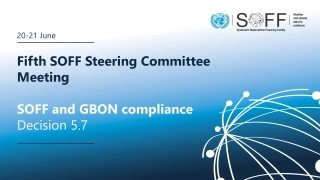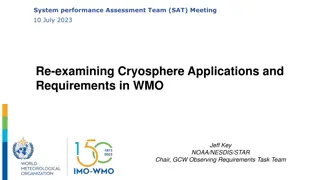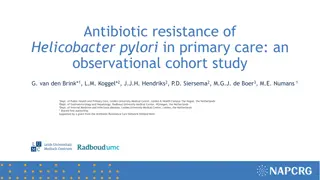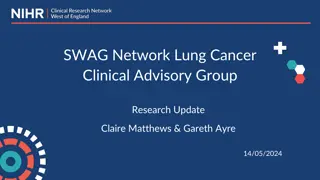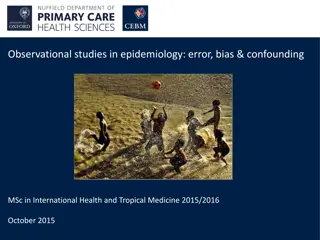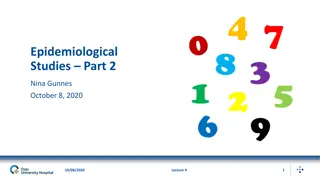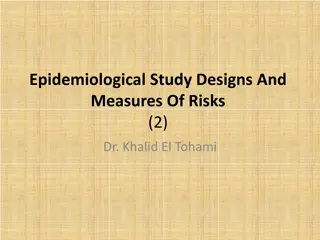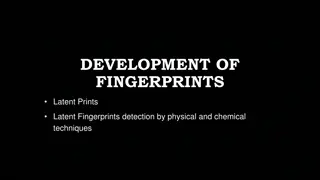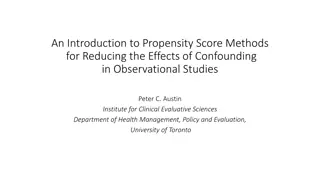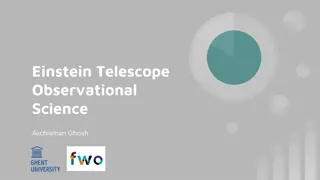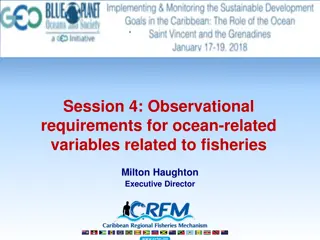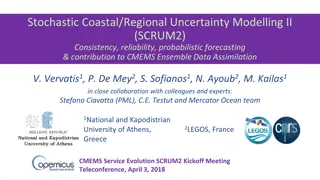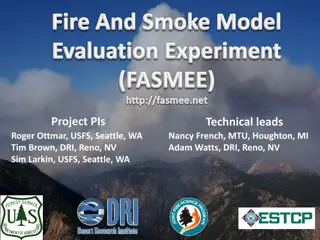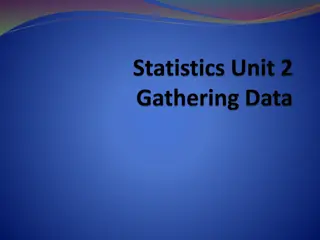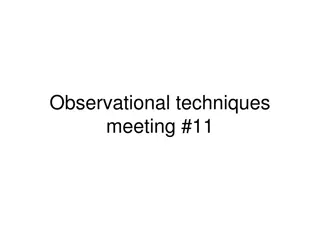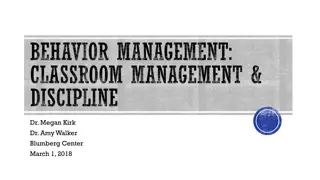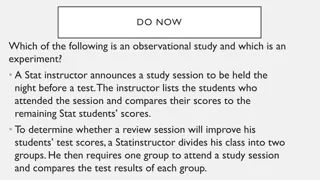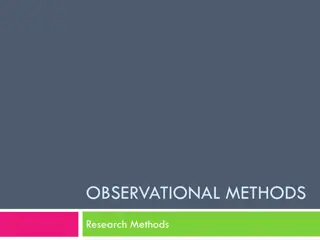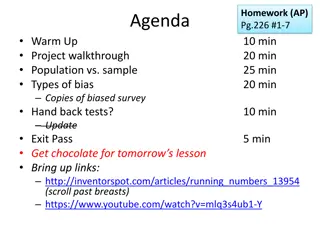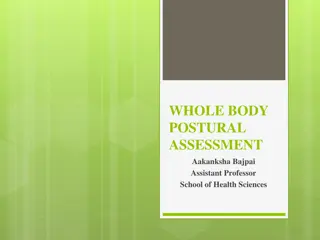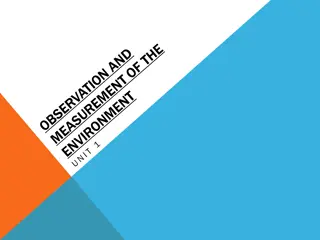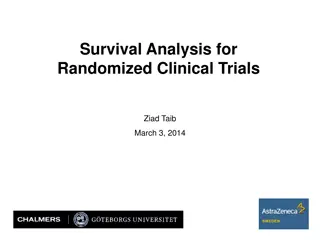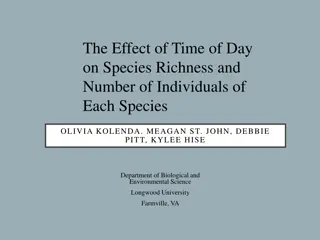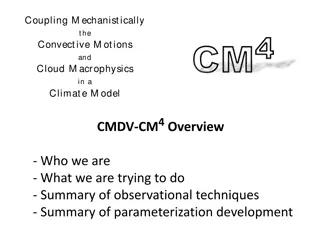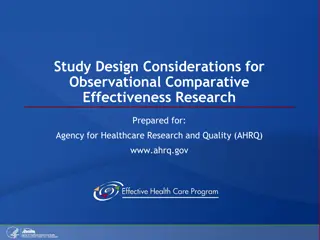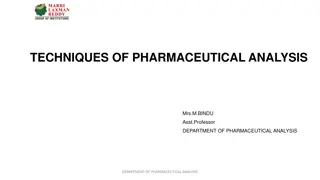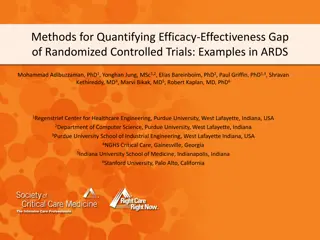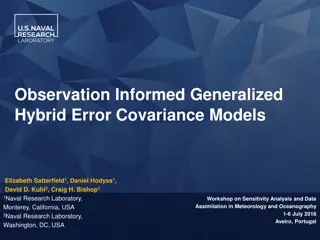Fifth SOFF Steering Committee Meeting
The decisions made during the 5th SOFF Steering Committee Meeting regarding the compliance of stations with GBON requirements. It emphasizes the need to secure an adequate supply of observational data for global NWP centers and highlights the importance of station compliance, data exchange, and main
21 views • 8 slides
Understanding Observed Changes in Atmospheric Solar Reflection and Surface Albedo
Exploring the attribution of changes in Earth's Albedo Shortwave Radiation (ASR) to various processes including atmospheric and surface contributions. The impacts of incident solar radiation, cloud reflection, absorption, and surface albedo are analyzed, along with the radiative sensitivity from iso
0 views • 12 slides
Clinical Update
This clinical update presents the 2023 ACC/AHA/ACCP/HRS guideline for diagnosing and managing atrial fibrillation. It categorizes recommendations based on class of recommendation and level of evidence, ranging from strong to weak. Recommendations are supported by high-quality evidence from randomize
1 views • 46 slides
Understanding Investigations in Science
Investigating in science involves various approaches beyond fair tests, such as pattern-seeking, exploring, and modeling. Not all scientists rely on fair tests, as observational methods are also commonly used. The scientific method consists of steps like stating the aim, observing, forming hypothese
1 views • 20 slides
Understanding Quantitative Research Designs in Health Research
Quantitative research designs play a crucial role in health research, offering various methodologies like experimental and observational designs. Observational designs are commonly used and can establish associations but not causality. Longitudinal designs track outcomes over time, providing valuabl
3 views • 25 slides
Re-examining Cryosphere Applications and Requirements in WMO - SAT Meeting Summary
The System Assessment Team (SAT) meeting on 10th July 2023 revolved around re-evaluating cryosphere applications and requirements within WMO. Jeff Key from NOAA/NESDIS/STAR chaired the meeting, focusing on updating and expanding observational requirements for the cryosphere. The cryosphere, encompas
5 views • 26 slides
Influence of Solar Activity and Orbital Motion on Terrestrial Atmosphere
Solar magnetic field reversal, wavelet spectral analysis, and proxies for solar activity index are discussed in relation to the joint effects of solar activity and solar orbital motion on the Earth's atmosphere. The study highlights the impact of solar cycles on terrestrial climate dynamics and temp
6 views • 16 slides
Understanding Neuropsychological Assessment: Insights and Applications
Neuropsychological assessment plays a vital role in understanding brain-behavior relationships. This process involves determining cerebral functioning, identifying dysfunction, and assessing cognitive abilities through a combination of interviews, observational data, and testing. The assessment aids
3 views • 33 slides
Antibiotic Resistance of Helicobacter pylori in Primary Care: Observational Cohort Study
Research focused on Helicobacter pylori eradication success and antibiotic resistance development in primary care settings, revealing an 8% rate of treatment failure leading to a second treatment within 12 months. The study suggests a need to revise treatment guidelines, potentially targeting specif
0 views • 6 slides
Latest Research and Studies on Lung Cancer - Update May 2024
This research update includes information on national recruitment to lung cancer studies, comparison of national vs. regional recruitment, and detailed descriptions of various studies and trials related to lung cancer. The studies cover areas such as treatment advancements, observational studies, ma
2 views • 13 slides
Understanding Observational Studies in Epidemiology
Delve into the realm of observational studies in epidemiology, exploring concepts such as error, bias, and confounding. Discover the significance of various study designs, from case reports to prospective cohort studies, in elucidating associations and establishing causality in non-communicable dise
0 views • 58 slides
Overview of Cohort Studies in Epidemiology
Cohort studies are a type of observational study where a group of healthy subjects is followed over time to investigate relationships between exposures and outcomes. They provide valuable insights into disease development and risk factors, offering advantages like assessing multiple exposures and en
0 views • 21 slides
Understanding Epidemiological Study Designs and Measures of Risks
This informative content covers various epidemiological study designs, including observational and experimental studies, clinical trials, cohort studies, and more. It explains the concept of cohorts, indications for cohort studies, and the design considerations involved. Images are included to illus
6 views • 41 slides
Understanding Fingerprint Development Techniques
Exploring the development of latent fingerprints through physical and chemical methods, conditions affecting latent prints, and various fingerprint development techniques like visual examination, powder techniques, and chemical techniques. Techniques such as alternate light sources and powder method
2 views • 22 slides
Understanding Clinical Trials: Types and Designs
Clinical trials are essential research studies that evaluate new tests and treatments to improve human health outcomes. They involve various phases, designs, and purposes, such as treatment trials, prevention trials, and observational studies. Different types of clinical trial designs include experi
7 views • 18 slides
Understanding Propensity Score Methods for Reducing Confounding in Studies
This content discusses the use of propensity score methods to address confounding in observational studies, comparing randomized control trials (RCTs) with observational studies, explaining the potential outcome framework, average treatment effects, and common assumptions made in these methods to re
0 views • 12 slides
Exploring the Einstein Telescope: Observational Science and Board Details
Delve into the world of observational science with the Einstein Telescope (ET). This comprehensive overview covers the involvement of Flanders researchers, gravitational wave sources, ET's detection capabilities, and its significant contributions to black hole and neutron star properties. Learn abou
1 views • 12 slides
Mastering the Art of Stand-Up Comedy: Techniques and Inspiration
Explore the world of stand-up comedy with a focus on improvisational techniques, creating original routines, essential comedy vocab, and steps to writing stand-up material. Dive into studying different types of comics and their approaches, from observational to topical, character-based, and prop com
0 views • 21 slides
Fisheries Management and Observational Requirements for Ocean-Related Variables
This content provides insights into observational requirements for ocean-related variables concerning fisheries, focusing on marine fish production in CRFM countries, the Flyingfish Management Plan, Caribbean Spiny Lobster management, and other fisheries management plans. It discusses the main objec
0 views • 18 slides
Observational Constraints on Viable f(R) Gravity Models Analysis
Investigating f(R) gravity models by extending the Einstein-Hilbert action with an arbitrary function f(R). Conditions for viable models include positive gravitational constants, stable cosmological perturbations, asymptotic behavior towards the ΛCDM model, stability of late-time de Sitter point, a
1 views • 12 slides
Stochastic Coastal Regional Uncertainty Modelling II (SCRUM2) Overview
SCRUM2 project aims to enhance CMEMS through regional/coastal ocean-biogeochemical uncertainty modelling, ensemble consistency verification, probabilistic forecasting, and data assimilation. The research team plans to contribute significant advancements in ensemble techniques and reliability assessm
0 views • 28 slides
Fire and Smoke Modeling Evaluation Effort (FASMEE) Overview
FASMEE is a collaborative project aimed at assessing and advancing fire and smoke modeling systems through critical measurement techniques and observational data. Led by key technical leads, FASMEE focuses on diverse modeling areas such as fire growth, effects, coupled fire-atmosphere behavior, smok
4 views • 30 slides
Essential Elements of Clinical Trial Protocols
Understanding the key components of a clinical trial research protocol is essential for conducting successful studies. This includes identifying session objectives, discussing trial protocol contents, exploring observational study elements, and learning about reporting guidelines. Study objectives f
1 views • 25 slides
Choosing Between Observational Study and Experiment in Research
Observational studies involve recording data without interfering with subjects, while experiments impose treatments on subjects to establish cause and effect. A well-controlled experiment is crucial for determining causation, while observational studies can provide quick results at lower costs. Each
0 views • 24 slides
Overview of Observational Techniques and Student Talks in Astronomy
This content covers observational techniques, student talks, and dates related to various astronomical topics such as gamma-ray astronomy, basics of gamma-ray interaction, scintillators and solid-state detectors, Compton telescopes, and pair telescopes. It provides insights into the main processes i
0 views • 23 slides
Understanding Behavior Management in Classroom Settings
Explore the essential topics of behavior management, classroom strategies, and discipline in educational settings. Delve into the functions of behavior, impact of trauma on learning, and effective management techniques. Learn how to identify underlying reasons for student behaviors, discuss behavior
0 views • 76 slides
Understanding Observational Studies vs. Experiments in Statistical Analysis
Explore the distinction between observational studies and experiments in statistics through practical examples like a Stat instructor evaluating a review session's impact on test scores. Learn about sampling methods, bias avoidance, and the implications of statistical study design. Discover how anal
1 views • 12 slides
Understanding Observational Research Methods
Observational research methods involve systematic observation of behaviors and can be used in various study designs such as experimental, correlational, and descriptive research. This type of research aims to provide insights into real-world behaviors with a focus on ecological validity. The process
0 views • 14 slides
Understanding Experimental Design and Bias in Statistics
Explore key concepts in statistics such as observational studies, experiments, bias, and sampling methods. Delve into the difference between observational studies and experiments, understand the impact of bias in research, and learn about sampling techniques like simple random sampling and stratifie
0 views • 22 slides
The Importance of Whole Body Postural Assessment in Occupational Safety and Health
Whole body postural assessments play a crucial role in evaluating ergonomic factors in the workplace to prevent musculoskeletal disorders. Popular observational techniques such as NIOSH lifting equation, RULA, and REBA are commonly used. Ergonomic and job analysis checklists are tailored tools used
0 views • 21 slides
Enhancing Observational Skills through the 5 Senses and Devices
Explore how the 5 senses - sight, touch, hearing, taste, and smell - interact with our environment and how observations can be enhanced using specialized devices beyond human senses. Discover examples like a graduated cylinder, microscope, spring scale, wind vane, and compass that extend observation
0 views • 146 slides
Understanding Survival Analysis in Clinical Trials
Survival analysis plays a crucial role in analyzing data from randomized clinical trials, observational studies, and experiments. It involves estimating the survival function, conducting the log-rank test, and identifying when to use this analytical approach. Elements of survival experiments, standa
0 views • 73 slides
Effect of Time of Day on Bird Species Richness and Individuals
The study investigates how the time of day impacts the species richness and number of individuals of birds at a specific feeder in Longwood University's Environmental Education Center. Through observational studies and counting, the researchers aim to determine if there are differences in bird popul
0 views • 20 slides
Understanding Fingerprint Development Techniques
Latent fingerprints are hidden impressions left by the friction ridges of the skin which require physical or chemical techniques for visualization. Factors affecting latent prints include surface type, touch manner, weather, humidity, perspiration, and suspect care. Techniques such as visual examina
0 views • 22 slides
Understanding Coupling of Convective Motions and Cloud Macrophysics in Climate Model CMDV-CM4
This project led by Lawrence Berkeley National Laboratory aims to mechanistically couple convective motions and cloud macrophysics in the CMDV-CM4 climate model. Through observational techniques and parameterization development, they seek to evaluate and enhance current cloud representations, develo
0 views • 16 slides
Enhancing Your Skills as an Astronomical Observer
Elevate your observational skills by learning to explore beyond familiar objects like M13. Discover techniques for selecting, locating, and observing various celestial bodies, aided by observing lists, star atlases, and different telescope types. Understand the importance of aperture and delve into
1 views • 37 slides
Study Design Considerations for Observational Comparative Effectiveness Research
This presentation outlines key considerations for study design in observational comparative effectiveness research, including rationale for design choice, defining start of follow-up, inclusion/exclusion criteria, exposures of interest, outcomes, and potential confounders. It discusses various study
0 views • 16 slides
Analytical Techniques in Pharmaceutical Analysis
Analytical techniques play a crucial role in determining the identification and concentration of chemical substances in pharmaceutical analysis. Techniques range from simple gravimetric analysis to sophisticated methods using specialized instrumentation. Various techniques like gravimetric, titrimet
0 views • 17 slides
Methods for Quantifying Efficacy-Effectiveness Gap in Randomized Controlled Trials
This research discusses the quantification of the efficacy-effectiveness gap in randomized controlled trials (RCTs), particularly focusing on examples in Acute Respiratory Distress Syndrome (ARDS). It explores the challenges of RCTs, ethical considerations, and the use of observational data for caus
0 views • 8 slides
Investigation of Observation-Informed Generalized Hybrid Error Covariance Models
In the field of meteorology and oceanography, the study focuses on the development of hybrid error covariance models that combine flow-dependent and climatologically-based estimates for improved data assimilation. The research aims to determine optimal hybridization parameters through innovative met
0 views • 14 slides
